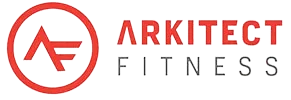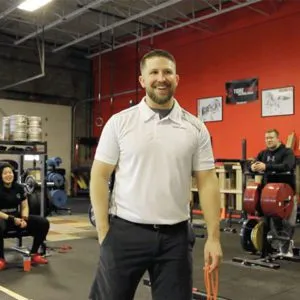When people join a gym for the first time, or after a long lay off, they are usually feeling highly motivated to overhaul their lifestyle habits. “This is going to be the time” is a sentiment we often here. It’s not uncommon for clients to have ambitious and lofty goals. If there is one thing I can tell you after working in gyms since 2005, it’s that motivation is incredibly fleeting, and often people bite off more than they can chew. Change isn’t easy, and even “experts” on behavior haven’t truly solved the puzzle on how to effectively and consistently get people to modify their behavior. But if experience has taught me anything, it’s that complete overhauls rarely work. Instead integrating small changes usually proves to be more effective.
Most people know that nutrition is an important part of seeing results, but nutrition isn’t as always as straightforward as exercise. Clients also come equipped with an arsenal of misinformation about nutrition, which makes the process of change even more daunting. While we work hard at Arkitect to make improving your nutritional habits easy, it can still be a steep learning curve. In an effort to further simplify the process, and in alignment with focusing on one small change at a time, in this article we are going to talk about one simple thing you can do (starting today) to make a positive step in your nutrition: Increase your protein intake.
Why Protein is so important
Unfortunately over the years there have been many different diets putting various foods or food groups on the chopping block (pun intended). From dietary fat, to carbohydrates, sugar, processed, foods, meat, etc…But there is one thing that rarely gets accused of being the bad guy: Protein. While we don’t believe there are any “bad foods” (just useful or not useful), protein is universally accepted as being important, and rightfully so. Protein is used for hundreds if not thousands of functions in the body, but we’re going to highlight some of the top reasons a protein rich diet is crucial to seeing results in the gym.
- Proteins are the building blocks of muscle. When you exercise you are causing “micro-trauma” to the muscle tissue. This signals your body to repair the tissue to be stronger to handle the stimulus being placed on it via exercise. Without adequate protein, your body will lack the nutrients to properly repair the muscle and recover from your workouts. This doesn’t mean eating protein will make you look like a bodybuilder. This just means a normal, healthy amount of muscle.
- Protein is muscle sparing. When you’re trying to lose body fat, you will also lose some muscle. Now if you don’t have much muscle to begin with, then sparing all the muscle you can will make this even more important. A protein rich diet will help with that.
- Protein is more thermogenic than carbs or fats. Translation: Everything your body does requires calories, including digesting the food you eat. You burn more calories digesting protein than you do carbs or fats.
- Protein is satiating. In other words, it helps fight off hunger. The less hungry you feel, the less likely you are to over eat in general, and that is helpful in achieving and maintaining a leaner physique.
How Much Protein Do You Need?
There is a lot of debate about how much protein people need to eat. What is often confused is recommended daily minimums vs. optimal protein intake. A daily minimum, is exactly that, a minimum. That doesn’t mean it’s ideal. Think of it like the bare minimum amount of money you need to make to survive, vs how much you need to make to lift the lifestyle you want to live. At the very minimum we recommend 1.6 grams of protein per kilo of body weight. So if you weighed 100 kilos, you would want to eat 160g of protein a day. Compare this to the FDA recommended 0.8g per kilo of body weight. That would be 80g of protein for the same 100kg person, or in other words…half of what science has shown us to be optimal. Keep in mind, people who exercise will have higher protein requirements.
To further highlight how stupid the governments recommendations can be, let’s look at the recommended calorie intake of 2,000 calories a day. This will usually be too high for most women, and too low for most men. 80g of protein a day is only 16% of 2,000 calories. That means 84% of your calories would have to come from carbs and fats. While I don’t have think carbs or fats are “bad for you” the government also tells you to limit both of those nutrients. So I’m not exactly sure where your 2,000 calories are supposed to come from. Of course there is plenty of science to back up a more protein packed diet, but if that’s not enough to convince you, just look at the legions of fit, lean and athletic people who swear by higher protein diets.
Where to Get your Protein
There are a few ways to increase your protein intake, the first is to eat bigger servings of the protein based foods you already eat. The second way is to eat protein rich foods more frequently. Here are some great protein sources:
- Protein shakes. There are people out there who claim that all of your protein should come from natural food sources. I will take getting adequate protein from supplements over inadequate protein from whole foods. Protein shakes are quick, easy, and convenient. We recommend any whey protein isolate. We personally use and sell Transparent Labs protein at Arkitect Fitness.
- Meat. Chicken is the best bet in terms of pure protein because it usually doesn’t have much fat or carbs. Beef is also high in protein but has more fat in it, as does most pork cuts.
- Seafood. Anything white (haddock, scallops, etc…) will usually have high protein with minimal fat. Darker or colored cuts of fish will have high protein but will usually be a bit fattier.
- Dairy. Milk, yogurt, and cheese are all high protein food sources, but unless specifically made to be “low fat” they will also have high fat content. Look out for the higher carbs in yogurt as well.
- Some plant based foods. You wouldn’t think of plants as high protein, but things like lentils and beans can have a very respectable amount of protein in them.
The First Step
While increasing your protein isn’t the end all be all to your nutrition, it’s been our experience at Arkitect that most people simply do not eat enough protein to achieving their goals. While we implement a flexible dieting strategy with our clients, learning how to track your food, and then to consistently hit your protein, carb and fat targets can be a big adjustment, and a challenge for people new to dieting. Starting with a smaller goal of increasing your protein can be the first step in acquiring new habits and reaching your goals.
Get your FREE protein cheat sheet HERE
If you feel like you need personalized attention to help you with your nutrition, our nutrition program is for you. E-mail me: Tony@arkitectfitness.com for more information about how we can help you!




